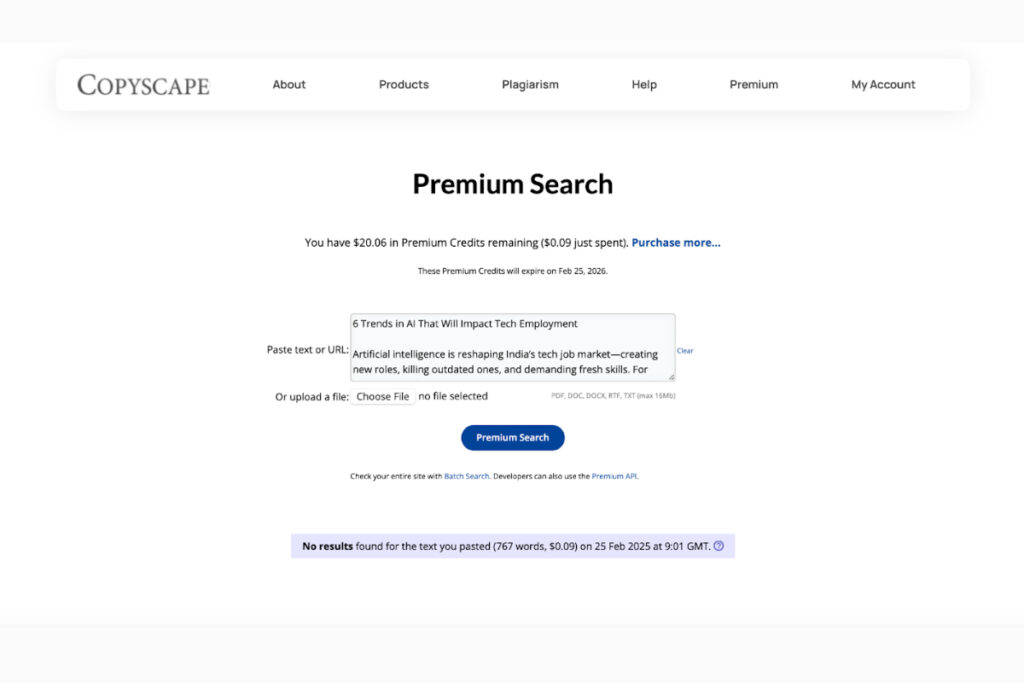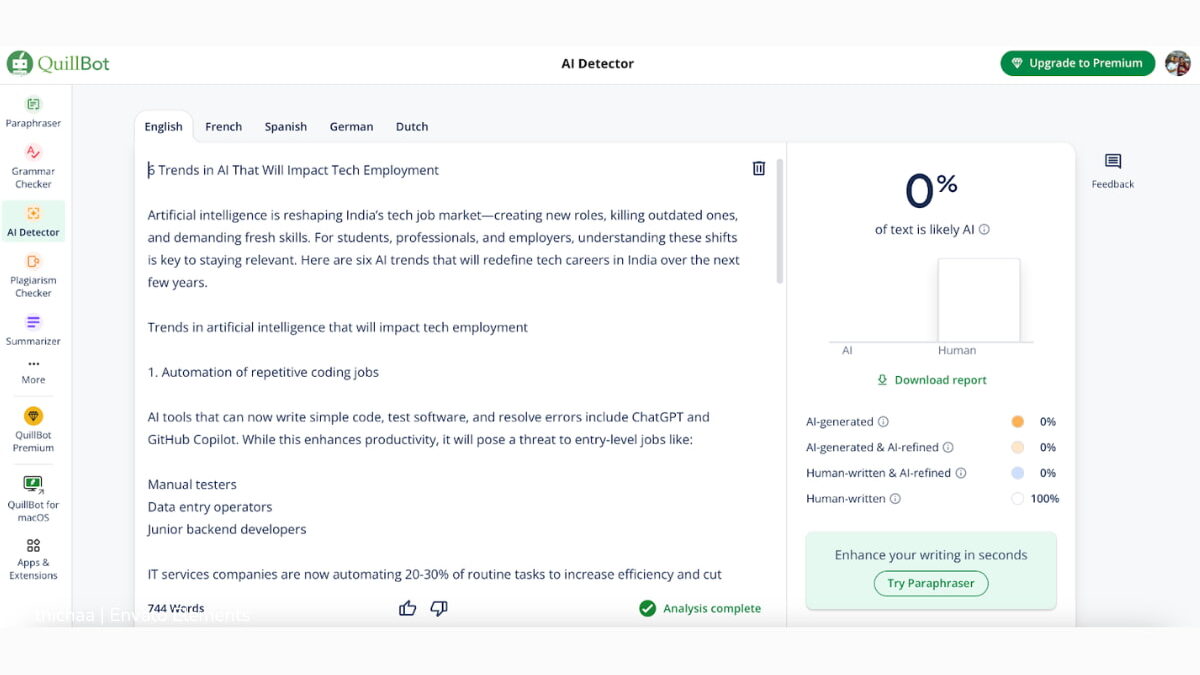6 Trends in AI That Will Impact Tech Employment
Artificial intelligence is reshaping India’s tech job market—creating new roles, killing outdated ones, and demanding fresh skills. For students, professionals, and employers, understanding these shifts is key to staying relevant. Here are six AI trends that will redefine tech careers in India over the next few years.

Trends in artificial intelligence that will impact tech employment
1. Automation of repetitive coding jobs
AI tools that can now write simple code, test software, and resolve errors include ChatGPT and GitHub Copilot. While this enhances productivity, it will pose a threat to entry-level jobs like:
- Manual testers
- Data entry operators
- Junior backend developers
IT services companies are now automating 20-30% of routine tasks to increase efficiency and cut down on redundancy. Freshers will have to upskill faster to handle difficult projects.
Survival tip: Learn to use AI coding assistants instead of fearing them. Prioritise innovative problem-solving instead of syntax.
2. AI-first roles in non-tech industries
Healthcare, agriculture, and banking now need AI talent:
- Healthtech: Building diagnostic tools for rural clinics
- Agritech: Developing crop prediction models for small farmers
- Fintech: Designing fraud detection systems for UPI payments
Opportunity: India will need 1.5 million AI specialists by 2025, per NASSCOM. Roles like AI product managers and ethics officers will take centre stage.
Startups are now paying AI engineers a decent package to develop and run chatbots that help Indian farmers access MSP rates in local languages.
3. Upskilling: Learn new skills or fall behind
Tech workers must constantly update their skills as AI evolves. Key areas include:
- Prompt engineering: Writing precise instructions for AI tools
- AI governance: Ensuring systems comply with Indian laws
- Domain expertise: Combining AI with industry knowledge (e.g., healthcare analytics)
Reality check: 50% of current tech skills will be outdated by 2026, says a report. Firms now run monthly AI training.
4. Rise of the AI gig workforce
Platforms like Upwork and Awign offer project-based AI jobs, such as:
- Training chatbots with Indian languages
- Labelling medical scan datasets
- Auditing AI models for bias
Pros: Students can earn a decent amount every month by making the most of such opportunities.
Cons: No job security or benefits.
India angle: Vernacular data annotation (Hindi, Tamil, etc.) is a Rs. 800 crore industry, creating gigs for semi-skilled workers.
5. Ethical AI roles gain importance
As AI spreads, companies need guards against risks like:
- Bias detectives: Ensuring loan algorithms don’t discriminate against women or rural applicants
- Privacy experts: Protecting Aadhaar-linked data in AI systems
- Compliance officers: Navigating India’s upcoming AI regulations
Hiring spike: Legal-tech startups now pay Rs. 15-20 lakh/year for AI ethics consultants.
6. AI democratises tech entrepreneurship
Low-code AI tools let non-coders build apps:
- Farmers can create crop price alert systems via platforms like Appy Pie
- Small shops use ChatGPT plugins to automate inventory tracking
- Teachers design personalised learning bots without IT help
Shift: Tech jobs move from big cities to Tier 2/3 towns. Coimbatore and Indore see significant YoY growth in AI startups.
How NBFCs are reshaping AI hiring
Non-banking financial companies now use AI to assess job candidates. For instance, some banks analyse video interviews for communication skills and cultural fit. This could reduce hiring biases but raises privacy concerns.
Online marketplaces: The new AI battleground
Some digital platforms use AI to optimize logistics and customer service. This creates demand for:
- AI supply chain managers
- Regional language chatbot trainers
- Dynamic pricing analysts
Several sellers are doubling their sales using AI tools, needing just one tech-savvy employee instead of a full IT team.
Preparing for the AI job wave
- Students: Take free AI courses on NPTEL or Google Digital Garage.
- Professionals: Add “AI collaboration” skills—using tools like Gemini or Copilot effectively.
- Employers: Partner with NSDC for subsidised AI training programmes.
The bottom line
AI won’t wipe out tech jobs—it will reshape them. Roles requiring human judgment, creativity, and ethical oversight will be in great demand. For India, the challenge is to skill 5 million youth annually for AI-augmented workplaces. The role of NBFCs and online marketplaces cannot be ignored either, as they provide several opportunities to individuals and small businesses. However, it is also important to establish fences to protect the privacy of individuals.
Instead of fearing artificial intelligence and replacing humans, we should use AI as assistants, which can open a whole new world of opportunities. Its integration and impact in the tech world will be significant and far-reaching, opening doors to opportunities we never knew existed.


Keep reading: Microsoft launches Majorana 1, the quantum chip that promises to revolutionize industrial-scale computing




